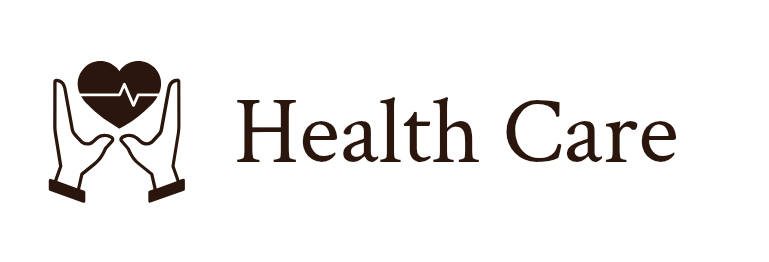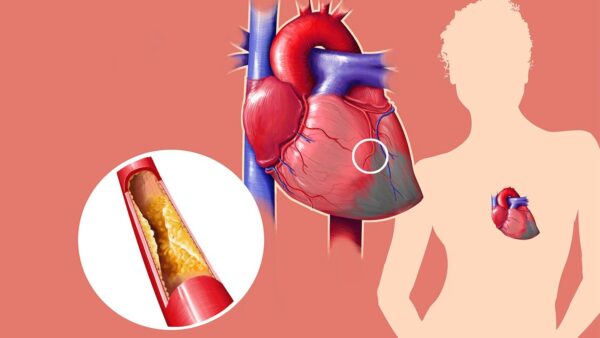Contents
- 1 High Cholesterol: A Genetic Disorder or a Lifestyle Disease? Get the Facts -2023
- 2 Introduction to High Cholesterol and What it Means
- 3 Causes of High Cholesterol
- 4 Genetic Factors in High Cholesterol
- 5 Lifestyle Choices Related to High Cholesterol
- 6 Here are some lifestyle choices that can help:
- 7 Diagnosing and Treating High Cholesterol
- 8 There are two types of cholesterol: LDL (low-density lipoprotein) and HDL (high-density lipoprotein). LDL is the “bad” type of cholesterol because it can
- 9 Diet and Exercise for High Cholesterol Management
- 10 Some specific dietary changes that can help lower cholesterol include:
- 11 Managing Stress and Anxiety with High Cholesterol
- 12 Conclusion
High Cholesterol: A Genetic Disorder or a Lifestyle Disease? Get the Facts -2023
High Cholesterol: A Genetic Disorder or a Lifestyle Disease? Get the Facts:– Are you one of the many people who have been told they have high cholesterol? If so, you may be wondering if this is a result of your genetics or lifestyle choices. The truth is, it could be both! In this blog post, we will explore the factors that contribute to high cholesterol levels and help you understand whether it’s a genetic disorder or a lifestyle disease. Get ready to learn the facts about cholesterol – and how you can take control of your health.
Introduction to High Cholesterol and What it Means
High cholesterol is a condition that can be caused by genetic factors, but lifestyle choices are also a significant contributing factor. Diet and exercise play a role in maintaining healthy cholesterol levels, and avoiding tobacco use is also important.
Cholesterol is a common condition that occurs when there is too much LDL cholesterol, or “bad” cholesterol, in the blood. LDL cholesterol is a type of fat that can build up on the walls of arteries and lead to heart disease.
The most common cause of high cholesterol is a diet that is high in saturated fats and trans fats. Other causes include genetics, certain medical conditions, and medications.
H cholesterol) l rarely has any symptoms, so it is important to get your cholesterol checked regularly. If you have high cholesterol, there are lifestyle changes you can make and medications you can take to lower your LDL cholesterol and reduce your risk of heart disease.
Causes of High Cholesterol
HC (High cholesterol) is most commonly caused by a genetic disorder, but it can also be caused by lifestyle choices. A diet high in saturated fats and trans fats can lead to high cholesterol. Other lifestyle choices that can contribute to high cholesterol include smoking, being overweight, and not getting enough exercise.
Genetic Factors in High Cholesterol
There are a variety of factors that can contribute to high cholesterol, and genetics is one of them. If you have a family history of high cholesterol, you may be more likely to develop it yourself. However, lifestyle choices can also play a role in raising your cholesterol levels. Eating a diet high in saturated fats and trans fats can increase your cholesterol, as can being overweight or obese. Lack of exercise can also contribute to high cholesterol.
If you have high cholesterol, it’s important to talk to your doctor about ways to lower it. In some cases, lifestyle changes may be enough to bring your numbers down. But if your genetic factors put you at higher risk for heart disease, you may need medication to manage your cholesterol levels.
Lifestyle Choices Related to High Cholesterol
Your lifestyle choices can affect your cholesterol levels. If you have high cholesterol, you may be able to improve it by making changes in your diet and exercise habits.
Here are some lifestyle choices that can help:
* Eat a healthy diet. Choose foods that are low in saturated and trans fats, and high in fiber. Good choices include fruits, vegetables, whole grains, beans, lean meats, and fish.
* Get regular exercise. Exercise can help lower LDL (“bad”) cholesterol and raise HDL (“good”) cholesterol levels. Aim for at least 30 minutes of moderate-intensity aerobic activity most days of the week.
* Lose weight if you’re overweight or obese. Losing even a small amount of weight can help lower your cholesterol levels.
* Quit smoking. Smoking damages the walls of your arteries, which can lead to plaque buildup and higher cholesterol levels.
Diagnosing and Treating High Cholesterol
High cholesterol is a serious condition that can lead to heart disease, stroke, and other health problems. The good news is that it can be controlled with lifestyle changes and, if necessary, medication.
If you have high cholesterol, your first step should be to see your doctor for a complete physical exam and blood tests. Based on the results of these tests, your doctor will determine whether you have high cholesterol and whether any lifestyle changes or medications are needed to lower your cholesterol level.
There are two types of cholesterol: LDL (low-density lipoprotein) and HDL (high-density lipoprotein). LDL is the “bad” type of cholesterol because it can
build up in your arteries and form plaque. HDL is the “good” type of cholesterol because it helps remove LDL from your arteries.
Your doctor will likely recommend making some lifestyle changes if you have high LDL levels and/or low HDL levels. These changes may include eating a healthy diet, getting more exercise, quitting smoking, and losing weight if you are overweight. If these lifestyle changes don’t lower your cholesterol enough, your doctor may also prescribe medication.
Statins are the most common type of medication used to treat high cholesterol. Statins work by blocking an enzyme in your liver that is needed to make cholesterol. This lowers your body’s production of LDL cholesterol and helps reduce the amount of plaque in your arteries. Other types of medications that may be prescribed include bile acid sequestrants,
Diet and Exercise for High Cholesterol Management
If you have high cholesterol, your doctor may recommend lifestyle changes in addition to cholesterol-lowering medication. These changes can include diet and exercise.
Diet:
Eating a healthy diet is one of the most important things you can do to lower your cholesterol. Aim for a diet that is low in saturated fat and trans fat, and high in fiber. Good sources of fiber include oats, beans, lentils, nuts, and fruits and vegetables.
Some specific dietary changes that can help lower cholesterol include:
Limiting saturated fat to less than 7% of total daily calories
Limiting trans fat to less than 1% of total daily calories
Eating 25-35 grams of fiber per day
Eating 2 grams of plant stanols or sterols per day
Exercise: Exercise has many benefits, including lowering cholesterol. Just 30 minutes of moderate exercise most days of the week can help raise your HDL (“good”) cholesterol levels. Regular physical activity can also help you lose weight and lower your LDL (“bad”) cholesterol levels.
Managing Stress and Anxiety with High Cholesterol
If you have high cholesterol, you may be at risk for heart disease. But there are things you can do to manage your stress and anxiety levels. Here are some tips:
1. Get regular exercise. Exercise can help lower your cholesterol and reduce your risk of heart disease.
2. Eat a healthy diet. Eating healthy foods can help lower your cholesterol and improve your overall health.
3. Quit smoking. Smoking cigarettes can damage your blood vessels and increase your risk of heart disease. If you smoke, quitting is the best thing you can do for your health.
4. Reduce stress in your life. Stress can raise your cholesterol levels and contribute to heart disease. Find ways to manage stress, such as yoga or meditation.
Conclusion
High cholesterol is an increasingly common health problem, and it can have a serious impact on your overall well-being. Understanding the causes of high cholesterol – whether it is genetic or lifestyle-related – can help you take steps to reduce your risk and keep your levels in check. If you think that either genetics or lifestyle choices like diet may be contributing to your elevated cholesterol levels, speak with your doctor for advice and treatment options. With the right information and medical guidance, managing high cholesterol does not have to be an overwhelming challenge.

